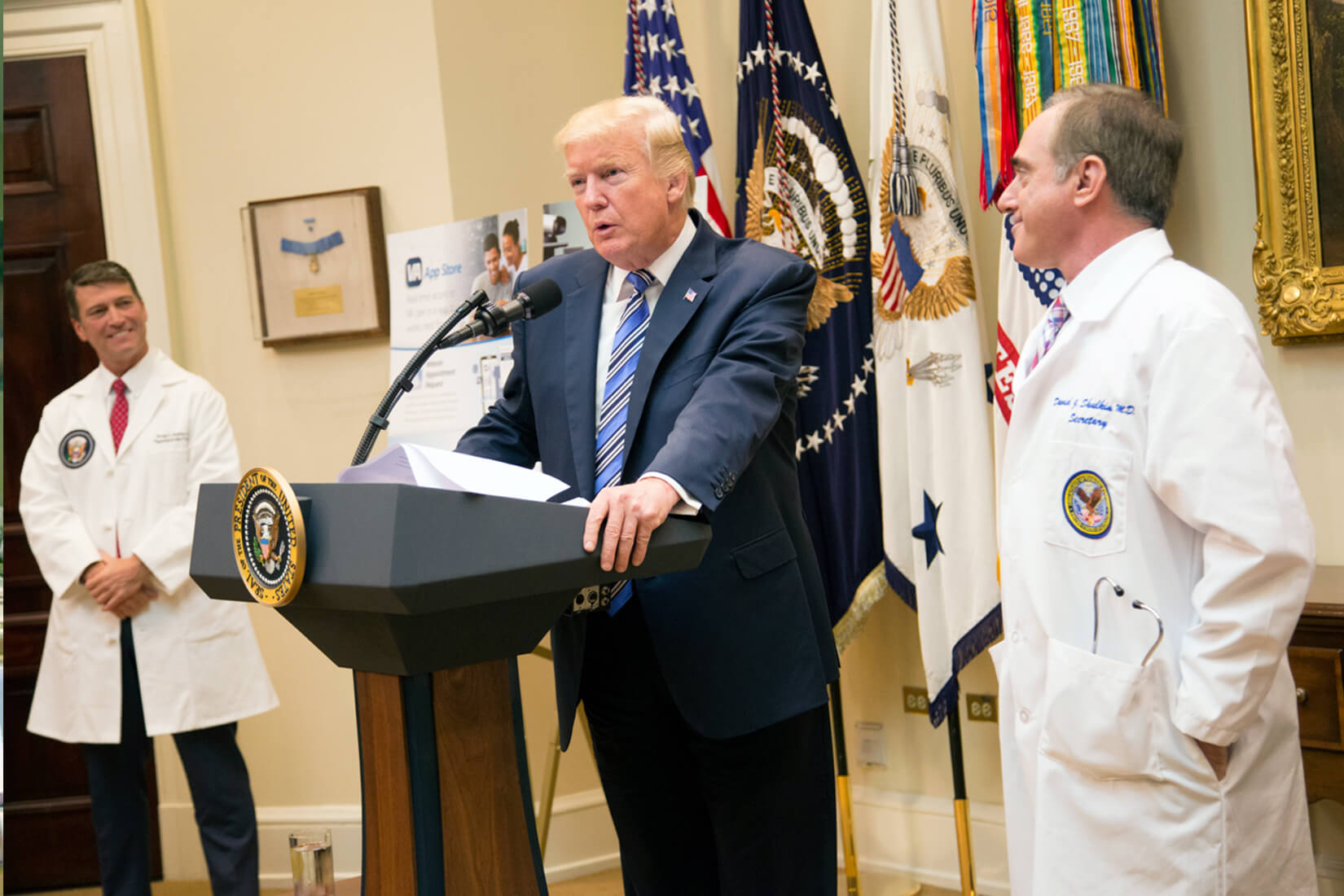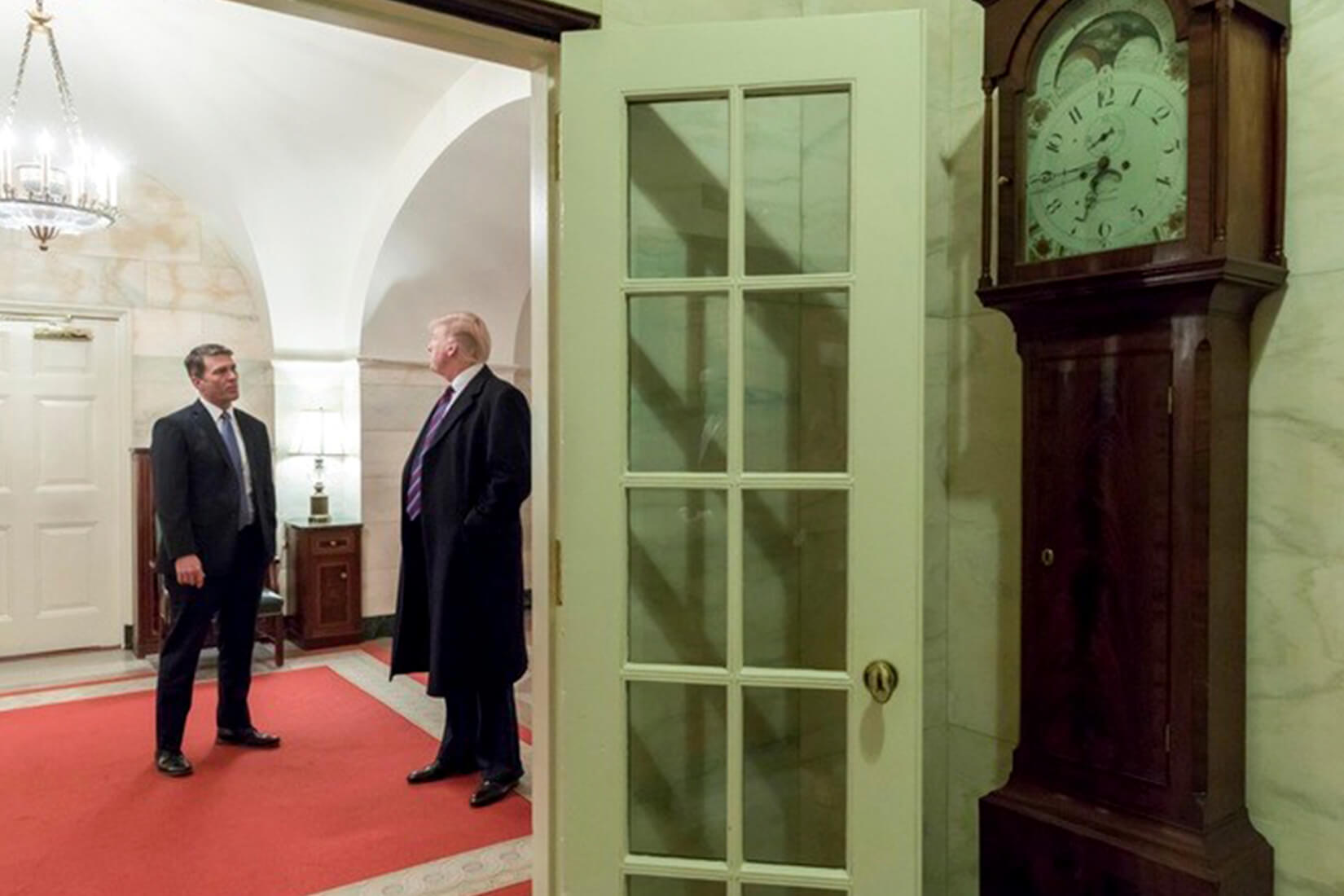
White House photo
WASHINGTON — Veterans’ groups expressed concern last month regarding a “lack of permanent leadership at the department,” after Rear Adm. Ronny L. Jackson, MD, withdrew his name from consideration as VA secretary amid anonymous allegations of misconduct.
“We urge the Administration to work with veteran stakeholders to bring forward a well-qualified candidate who can lead the department and continue necessary reforms to strengthen and sustain the VA for the men and women who served,” Disabled American Veterans Executive Director Garry Augustine said in a statement.
American Legion National Commander Denise H. Rohan said in a statement that the group was “very concerned” about the current lack of permanent leadership at the Department of Veterans Affairs.
“The VA has made significant improvements in modernizing and realigning the department since 2014 and was headed in the right direction under the past two incumbents. Our nation’s veterans deserve a strong, competent and experienced secretary to lead this vitally important department,” Rohan said.
It was not immediately known who Trump would pick to replace Jackson in the days following his withdrawl. There was speculation that former House Committee on Veterans’ Affairs Chairman Jeff Miller, a former Republican House member, and National Association of Veterans Affairs Physicians and Dentists President Samuel Spagnolo, MD, were among those under consideration by Trump to replace Jackson.

White House photo by Shealah Craighead
VA nominee
The search for a new secretary came after a dramatic turn of events in which Jackson’s nomination hearing was postponed by the Senate Committee on Veterans’ Affairs after several allegations were made by unnamed sources and released by Democrats.
In announcing the postponement of the nomination hearing, the Senate Committee on Veterans’ Affairs chairman, Sen. Johnny Isakson (R-GA), and Ranking Member Jon Tester (D-MT) said that “they take very seriously” their “constitutional duty to thoroughly and carefully vet each nominee sent to the Senate for confirmation.”
The two senators also said they had sent a letter to Trump requesting “all documentation pertaining to Rear Admiral Jackson’s service in the White House Medical Unit as Physician to the President.” The letter specifically asked for all communication “regarding allegations or incidents involving Rear Admiral Jackson from 2006 to the present.”
The allegations included that he had improperly dispensed prescription drugs, had been drunk on duty while traveling and had overseen a hostile work environment as White House physician. Among the most serious was that he wrecked a government vehicle after getting drunk at a Secret-Service party. The Secret Service issued a statement refuting that allegation.
“Going into this process, I expected tough questions about how to best care for our veterans, but I did not expect to have to dignify baseless and anonymous attacks on my character and integrity,” Jackson said of his decision to withdraw.
Meanwhile, President Trump who continued to defend Jackson even after he withdrew from consideration called the allegations “phony Democrat charges.” He called for the resignation of Senate Committee on Veterans’ Affairs Ranking Member Sen. Jon Tester (D-MT) who collected the allegations and shared them in news interviews.
“I think this will cause him a lot of problems in his state,” Trump said of Tester.
Jackson was largely unknown to the public before President Trump surprised many people by signaling his intention to nominate him at the end of March. Even before the allegations surfaced, there had been questions about his qualifications for the job.

